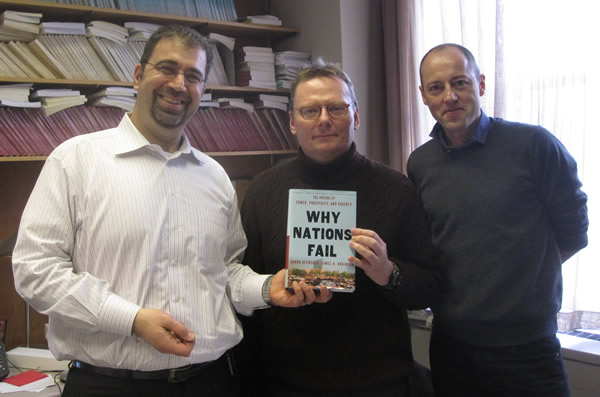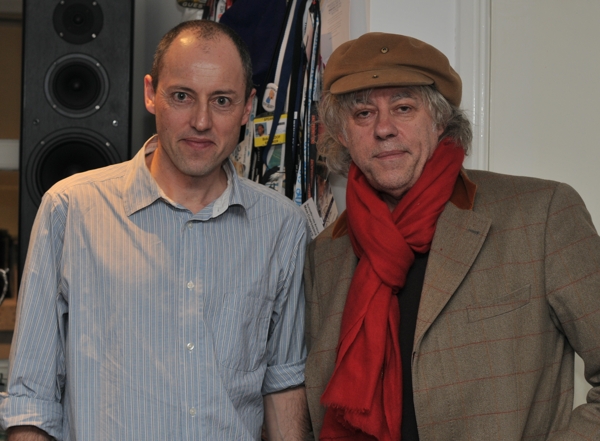
Development Drums
Owen Barder
Issues in international development and global poverty
- 1 hour 32 minutesEpisode 48: Stefan Dercon – Gambling on Development
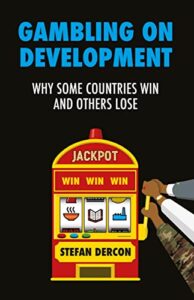
Stefan Dercon is Professor of Economic Policy and Director of the Centre for the Study of African Economies at the University of Oxford. He is a former DFID chief economist and a policy advisor to the UK foreign secretary.
Stefan Dercon argues that countries develop if they achieve an elite bargain, in which the country’s elites gamble on a future with economic growth and shared rising living standards. He cites examples such as China, Bangladesh, Ethiopia and China as examples of this, in contrast to other countries in which the elite has not gambled on development. Stefan draws on considerable experience in low-income countries, complementing his analysis with examples of development trajectories that have, and have not, succeeded.
3 June 2022, 12:15 pm - 55 minutes 13 secondsEpisode 47: Todd Moss – The Truth is Stranger Than Fiction
 Bestselling author Todd Moss is a former senior State Department official who led America’s response to coups and crises in West Africa. He is also my colleague at the Center for Global Development, where he is a Senior Fellow and Chief Operating Officer.
Bestselling author Todd Moss is a former senior State Department official who led America’s response to coups and crises in West Africa. He is also my colleague at the Center for Global Development, where he is a Senior Fellow and Chief Operating Officer.Todd’s first two books feature a fictional hero, Judd Ryker, an analyst in State Department. In The Golden Hour, Ryker is called upon to reverse a coup in Mali (the book was published a few weeks before a real coup in Mali). In the latest book, Minute Zero, Ryker has to handle a political crisis in Zimbabwe.
In this episode of Development Drums, Todd talks about his real life experiences in the US State Department, and explains why he uses fiction to explore US foreign policy towards Africa.
17 September 2015, 12:32 pm - 1 hour 8 minutesEpisode 46: Morten Jerven
Morten Jerven explains why we know less than we should about what is happening in African economies, and why this is leading economists to the wrong recommendations. His first book, Poor Numbers: How We are Misled by African Development Statistics and What to Do About It explained the problems with Africa’s economic data; an his new book, Africa: Why Economists Get it Wrong
sets out how this lack of nuanced understanding of the data has led to flawed analysis and recommendations. “The bottom line”, he says, “is that there is no bottom billion”.
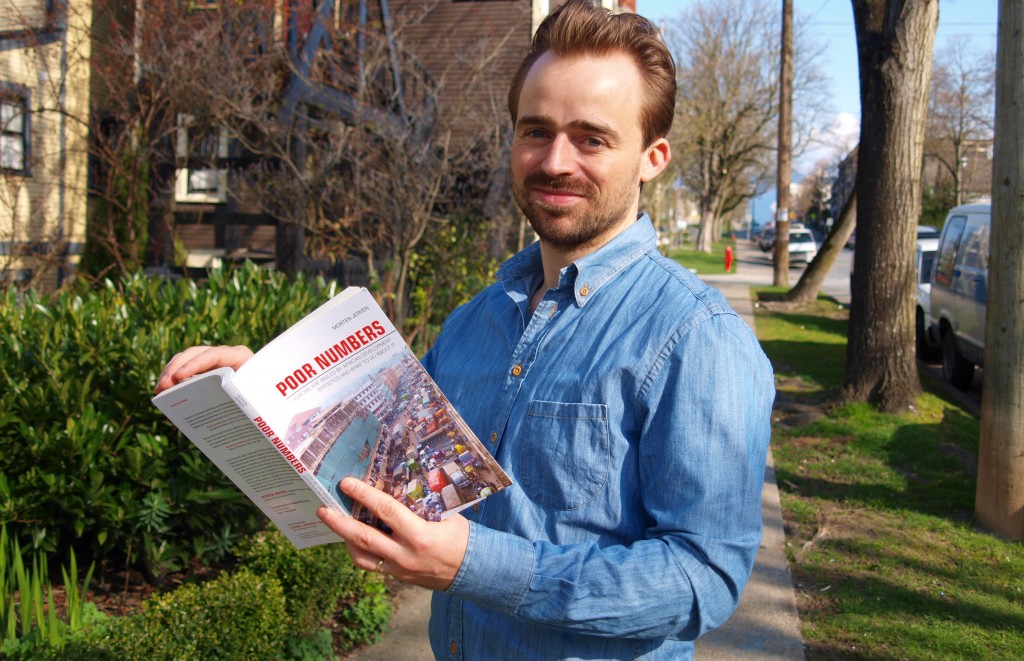 Morten Jerven is an Associate Professor at Simon Fraser University. He is an economic historian with a PhD from the London School of Economics.
Morten Jerven is an Associate Professor at Simon Fraser University. He is an economic historian with a PhD from the London School of Economics.Get the full transcript of Development Drums 46.
7 June 2015, 4:51 pm - 1 hour 15 minutesEpisode 45: Mind, Society and Behaviour (Varun Gauri)
Behavioural economics is hot.
In this edition of Development Drums, I talk to Varun Gauri, Senior Economist with the Development Research Group of the World Bank and Co-Director of the World Development Report 2015: Mind, Society, and Behavior.
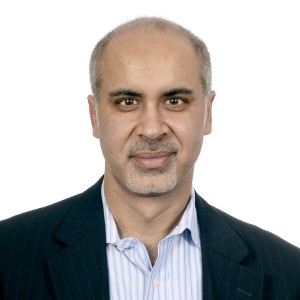
Varun explains the principles of behavioural economics, and discusses how they apply to development economics. He also discusses how these biases also affect development agencies and their staff, and the implications of behavioural economics for development agencies themselves.
3 May 2015, 5:42 pm - 45 minutes 14 secondsEpisode 44: The Data Revolution
Everyone seems to be talking about the data revolution these days.
In this episode of Development Drums, I speak with two people who have thought more about what it is, how to make it happen, and what it means for development than just about anyone else.
Claire Melamed is the Director of the Growth, Poverty and Inequality Programme at ODI. She was previously the Head of Policy at ActionAid UK. Her work focuses on measurement of poverty and inequality and on how to use the insights from measurement to improve policy and outcomes. She heads ODI’s work on the post-2015 agenda, including the data revolution. My colleague Amanda Glassman is the director of global health policy and a senior fellow at the Center for Global Development, leading work on priority-setting, resource allocation and value for money in global health, with a particular interest in vaccination. She is the author, together with Research Fellow Justin Sandefur, of the report Delivering on the Data Revolution in Sub-Saharan Africa.

Amanda and Claire talk about where the idea of a data revolution came from and how we can make sure it’s more than just “business as usual (with more money)”. We talk about the weaknesses in the current data collection systems and institutions, including perverse incentives for providers like national statistics offices, duplication of effort, and counter-productive competition between donors. We dig into how policymakers can invest in the capacity that developing countries need and wrap up with a discussion of how better information might deliver better development outcomes.
15 September 2014, 3:33 pm - 1 hour 15 minutesEpisode 43: Complexity
In this episode of Development Drums, I speak with Ben Ramalingam and Stefan Dercon about whether complexity and systems thinking offers actionable insights for better development interventions.
Ben Ramalingam is an independent researcher who has worked with development and humanitarian organisations including UN bodies, NGOs, the Red Cross movement, and government agencies. He is affiliated with the London School of Economics and the Overseas Development Institute, amongst other institutions and is the author of Aid on the Edge of Chaos: Rethinking International Cooperation in a Complex World. Stefan Dercon is a Professor of Development Economics at the University of Oxford and the Chief Economist at the Department for International Development, the UK government’s aid agency.
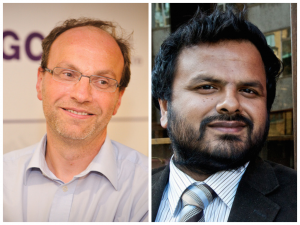 .
.In the podcast, I ask Ben to pin down what we’re talking about when we talk about complexity and complex systems, and ask Stefan whether any of this is actually new to development economics research or policy, which has long incorporated elements of complexity thinking. We debate whether systems thinking gives donors and governments new and useful tools, including for humanitarian intervention.
24 July 2014, 9:53 am - 57 minutes 58 secondsEpisode 42: The Idealist (Nina Munk on Jeff Sachs)
Nina Munk’s latest book, The Idealist, is about Jeffrey Sachs and the Millennium Villages Project. It is also a book about the efforts that people in industrialised countries make to help poor people. It is a book about vision, passion and hubris.

In this episode of Development Drums, Nina Munk tells the story of how she came to write the book, and what she learned about Jeff Sachs, and about development aid, as she did so.
10 March 2014, 4:06 pm - 1 hour 11 minutesEpisode 41: The Great Escape (Angus Deaton)
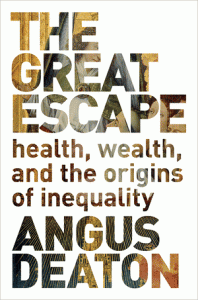 Angus Deaton, the Dwight D. Eisenhower Professor of Economics and International Affairs at the Woodrow Wilson School of Public and International Affairs and the Economics Department at Princeton University, talks about his book, The Great Escape, which brings together his research into health, well-being, and economic development.
Angus Deaton, the Dwight D. Eisenhower Professor of Economics and International Affairs at the Woodrow Wilson School of Public and International Affairs and the Economics Department at Princeton University, talks about his book, The Great Escape, which brings together his research into health, well-being, and economic development.In his book, Professor Deaton talks about the great progress that is being made in health and well-being, but also the problem of inequality within and between nations. The book finishes with a robust critique of the aid business, leading Professor Deaton to recommend that industrialised countries should spend money for, but not in, developing countries. In the podcast, I discuss with Professor Deaton the difference between happiness and well-being, the drivers of improved health around the world, and the implications of inequality of material well-being. We also debate his views about the impact of aid.
Here is a short video clip of part of the discussion. The full discussion – published in audio only – can be heard here on the website, or you can subscribe for free on iTunes.
Read the transcript of the podcast.
If you enjoy Development Drums, you may also enjoy CGD’s other podcast, the Global Prosperity Wonkcast. Here is a longer list of development podcasts.
21 December 2013, 10:27 pm - 1 hour 10 minutesEpisode 40: Why Nations Fail
Daron Acemoğlu and James Robinson talk about their best-selling book, Why Nations Fail.
In Why Nations Fail, Acemoğlu & Robinson argue that institutions matter for development and prosperity. Economic institutions can be broadly inclusive, leading to sustained economic prosperity, or extractive, enriching elites but doing little for the majority of the population. So far, that is not very new or exciting. A lot of development thinking has focused on institutions for at least 20 years, following the disappointing results of the Washington Consensus. In this book Acemoğlu & Robinson make the key point that these institutions which block development come about and persist because they benefit powerful elites.
Too often we act as if institutions block development because the leaders of those countries don’t know how to make them better: Acemoğlu & Robinson say that they generally persist because the leaders of those countries don’t want to make them better. As Acemoğlu says in the podcast, “Getting institutions right is not an engineering problem, it is a political problem”.
The podcast is in three broad parts. After the introduction, Acemoğlu & Robinson talk about their view that it is institutions which explain why some nations fail and others succeed, and why this explanation is better than alternative explanations such as geography or culture. Second, they talk abut the idea that institutions which block development tend to persist because of politics. And at the end, they talk about how change happens, and what (if anything) outsiders can do to accelerate and shape it.
Read the transcript of Development Drums 40.
This is the third in a series of three episodes of Development Drums looking at politics and power in development. In Episode 36, Rakesh Rajani and Martin Tisné discuss accountability and openness. In Episode 37 Duncan Green talks about his book From Poverty to Power.
Links mentioned in the podcast
Why Nations Fail on Amazon
(affiliate link)
Arvind Subramanian’s review of Why Nations Fail
Blog post by Acemoğlu & Robinson about David Cameron’s Golden Thread
Pods in Print: the people who do our transcripts
Bill Gates’s review of Why Nations Fail
Acemoğlu and Robinson response to Gates
Jeff Sachs’s review of Why Nations Fail ($)
Acemoğlu and Robinson response to Sachs
Here are some global development podcasts:
- Development Drums (website | stitcher | iTunes)
- Global Prosperity Wonkcast (website | stitcher | iTunes)
- Guardian Development Podcast (website | iTunes)
- Overseas Development Institute (website) (I can’t find them on iTunes or Stitcher)
4 May 2013, 9:26 pm - 1 hour 12 minutesEpisode 39: Bob Geldof (full version)
This is the unabridged version of an interview with Bob Geldof; the shorter edited version is available separately as Development Drums number 38.
Bob Geldof is a singer, songwriter, author, actor and part-time political activist. As lead singer of the Boomtown Rats, Geldof had chart success with Rat Trap and I Don’t Like Mondays. In 1984, Bob Geldof and Midge Ure brought together a group of musicians under the name Band Aid to record a single they wrote together, Do They Know Its Christmas?, which became one of the best-selling singles of all time. They went on to organise the Live Aid charity concert in 1985, and the Live 8 concert in 2005.
I met Bob Geldof in London to talk about his work fighting poverty in Africa. He talks in this podcast about 8 Miles, a new private equity company which he helped to establish to channel investment into Africa. We also talk about Band Aid, Live Aid, Live 8 and the Gleneagles Summit. He is characteristically robust about suggestions that Band Aid may have helped portray Africa in an negative light, and about allegations that money intended for famine relief was diverted to opposing sides in Ethiopia’s civil war.
In this longer version of the interview Bob reflects on how his own upbringing may have led to him responding as he did to news reports of famine in Ethiopia, and on the planning of Live Aid, Live 8 and Gleneagles. (Everything in the highlights is also in this longer version.)
22 March 2013, 11:15 pm - 36 minutes 12 secondsEpisode 38: Bob Geldof (edited)
This podcast presents the edited version (about half an hour) of a longer interview with Bob Geldof; if you prefer you can listen to the full interview (1 hr 15 minutes) in episode 39 of Development Drums instead.
Bob Geldof is a singer, songwriter, author, actor and part-time political activist. As lead singer of the Boomtown Rats, Geldof had chart success with Rat Trap and I Don’t Like Mondays. In 1984, Bob Geldof and Midge Ure brought together a group of musicians under the name Band Aid to record a single they wrote together, Do They Know Its Christmas?, which became one of the best-selling singles of all time. They went on to organise the Live Aid charity concert in 1985, and the Live 8 concert in 2005.
I met Bob Geldof in London to talk about his work fighting poverty in Africa. He talks in this podcast about 8 Miles, a new private equity company which he helped to establish to channel investment into Africa. We also talk about Band Aid, Live Aid, Live 8 and the Gleneagles Summit. He is characteristically robust about suggestions that Band Aid may have helped portray Africa in an negative light, and about allegations that money intended for famine relief was diverted to opposing sides in Ethiopia’s civil war.
In the longer version of the interview, also available as a Development Drums podcast, Bob reflects on how his own upbringing may have led to him responding as he did to news reports of famine in Ethiopia, and on the planning of Live Aid, Live 8 and Gleneagles. (Everything in the highlights is also in the longer version.)
22 March 2013, 11:14 pm - More Episodes? Get the App
Your feedback is valuable to us. Should you encounter any bugs, glitches, lack of functionality or other problems, please email us on [email protected] or join Moon.FM Telegram Group where you can talk directly to the dev team who are happy to answer any queries.
